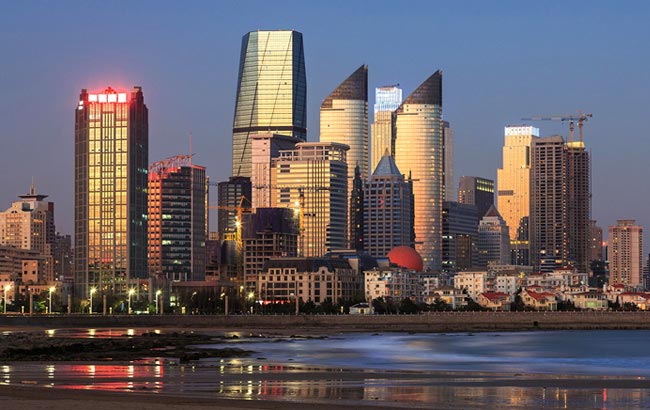Main Content
Clean Water for Megacities
The Chronicle of Higher Education
Professor Peter Cornel’s team from TU Darmstadt’s Institute WAR will be presenting the results of their joint interdisciplinary project with Tongji University at the Shanghai World Expo: A “semicentral” approach to municipal water supply, sewage treatment, and refuse disposal. The Institute WAR, in the Department of Civil Engineering, contributes to solving complex environmental problems with research on water supply and groundwater protection, wastewater technology, waste management, industrial material cycles, and environmental planning.
The group of Chinese and German scientists has developed infrastructural systems for urban water supply, sewage treatment, and refuse disposal that can be flexibly adapted to suit changing local conditions. A pilot system, operational since March 2010 at Eberstadt, a Darmstadt suburb, has been performing satisfactorily. That system was installed in conjunction with a project entitled “Solutions for Urban Water-Supply and Sewage-Treatment Systems in the Case of Hanoi,” and focuses on optimizing system processes.
The semicentral approach is based on the fact that centralized water-supply and sewage-treatment systems, like those employed in industrialized countries, are unsuitable for the rapidly-, frequently wildly-, growing municipalities of developing countries, since they cannot be upgraded flexibly and handle either water supply, sewage treatment, or refuse disposal only.
The semicentral approach allows for the handling of several different inputs. In the case of Hanoi, existing septic tanks have been incorporated into the municipal sewer system instead of being abandoned. Sewage from the sewer systems of new sections of the city currently being planned will be fed into the municipal sewer network. Sludge from storage tanks and the municipal sewer system may be combined with garbage that has been collected in order to create rich, organic fertilizers for agricultural use.
The Shanghai World Expo opened on May 1, 2010 and will run for six months. The organizers expect that around 70 million people will attend what will be the largest World Expo. Considering that the 21st century has been designated “The Century of the Cities” and the complex challenges faced today by the world’s cities face, the motto chosen for the Shanghai World Expo, “Better City, Better Life,” is both timely and highly appropriate. Exhibitors will be proposing various approaches to designing the cities of the future in the Expo’s numerous pavilions.
Contributions by cities will be on display at a World Expo for the first time. In addition to the work by the TU Darmstadt’s engineers, ideas conceived by groups from other German cities, in particular, Hamburg, Düsseldorf, Freiburg, and Bremen, will be on display in the “Urban Best Practice Area.”
(Quelle: The Chronicle of Higher Education)





